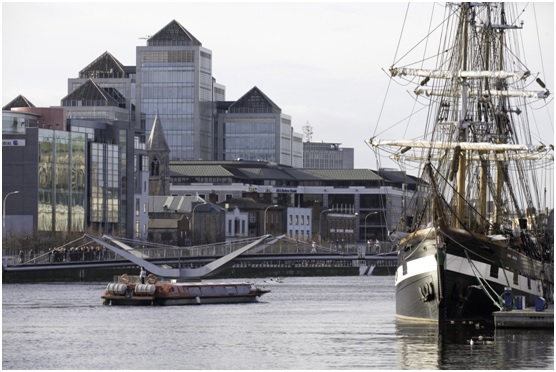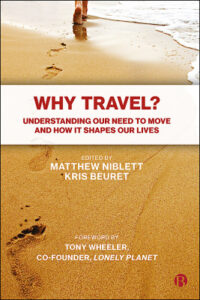Transport Ireland® 2015 Conference asks: ‘Why travel?’
10th April 2015
The Transport Ireland® 2015 conference in Dublin focussed this year on investment and featured a special session on understanding why people travel. The conference, now in its eighth year, is regarded as Ireland’s foremost annual conference for the transport sector and this year it was attended by around 100 delegates, with speakers from governmental and corporate organisations in Ireland, the UK and the OECD. The Independent Transport Commission’s Dr Matthew Niblett was invited to speak as a visiting expert at the special session on travel motivations and to present some of the findings of the ITC’s ongoing research project Why Travel?
Investment in transport infrastructure is often undertaken with a narrow economic perspective of travel as a derived demand – something that people do because they want to access something else, not because they value travel in itself. As a result investment is focused on reducing travel time. But, as Dr Niblett explained in his session, this model is proving inadequate for serving our travel needs, and we are struggling to accurately forecast travel behaviour. Instead, we need to ask: what actually determines our travel choices and preferences, and can the answers be found in the intrinsic drivers of human behaviour? The ITC’s Why Travel? project has been attempting to unpick these questions by exploring a wide range of research from the sciences and humanities that is causing us to rethink human movement. Much of this research, undertaken by experts in fields from evolutionary biology, to psychology and sociology, is largely unknown in the transport world. Yet it is becoming clear that travel might not merely be a demand derived from other activities, but also an inherent need in itself that is central to our physical and psychological well-being.
The physical and emotional benefits of exercise are well-known but recent research has also shown that the experience of novelty and challenge that travel brings can actually keep our brains healthy as they age. Indeed, some studies suggest that a sense of ‘psychological distance’ – even just the idea of travel – can increase creativity and problem-solving abilities. Our evolutionary origins provide clues to the deep roots of these biological benefits of travel. Our human ancestors evolved into bipedal animals as East African terrain changed from dense forest to open and rugged savannah, freeing hands for tool use and coinciding with the development of much larger brains capable of planning ahead and evaluating a wide range of surroundings. These insights from the sciences complement the findings of those who look at travel from many other perspectives, whether anthropologists, sociologists, philosophers or artists. A closer investigation of the language, literature, art and religions of peoples across the world shows the powerful role of travel as both an activity and an idea: perhaps the most obvious and pervasive being the description of life itself as a journey.
As was discussed at the Transport Ireland® conference, this research points to some very important ways of rethinking current policy approaches to transport, enabling us to better anticipate travel needs and to plan transport with more emphasis on the quality of the experience and on equity of access. The aim of the ITC’s Why Travel? project is to help bring this topic into public and mainstream policy debate, and to demonstrate that a better understanding of why we travel can enable us to better meet our travel needs. For more information on the project, including expert views and research see www.whytravel.org.



